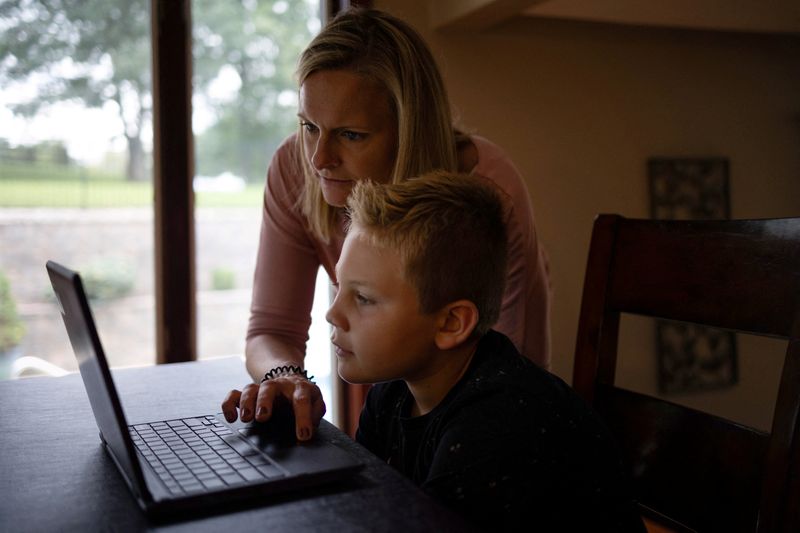By Chris Taylor
NEW YORK (Reuters) - When it comes to passing money smarts to children, many parents know where to start.
In the beginning, they introduce kids to the concept, giving them small amounts of money like allowances or tooth-fairy gifts to handle. The end goal is a fully-functioning financially responsible grownup – earning money, handling a budget, paying bills, saving for retirement.
The real challenge though is the in-between years. How exactly do you get them across the finish line?
That is the puzzle that was driving Bobbi Rebell nuts. The author, certified financial planner and former business news anchor for Reuters found herself frustrated trying to get her two then college-age stepkids to embrace ideas around financial literacy.
“Even though I spent decades writing business and personal-finance news, I was failing so miserably at it," says Rebell. “There are lots of amazing educational materials for little kids out there, but I couldn’t find anything for parents of people emerging into adulthood."
Presto: Her new book “Launching Financial Grownups”.
There are a few reasons why launching our kids into the real world is so challenging. Often adults do not have their own financial house in order, so we lack the knowledge or tools to teach the next generation.
In addition, the last thing any teenager wants to do is patiently listen to, and learn from, parents.
And schools are not a big help, either. Money skills are now part of some curriculums, but the reality is personal finance often gets overlooked as a subject.
The result is that teenagers often absorb money lessons from elsewhere, if at all. According to one survey by banking giant Wells Fargo (NYSE:WFC), 35% of teens say they get information about handling money from social media.
Every family’s resources and financial journeys are different, but these core principles can serve as a compass to raise money-smart kids:
FIND THAT BALANCE
It is usually unrealistic to launch kids at 18 and expect them to handle all their financial affairs from day one. At some point, though, you need to set them free.
Yet 74% of parents help their adult children out financially – and half say they are cutting into their own retirement savings to do so, according to surveys by the personal finance site Bankrate.
That is why where you need to find that delicate balance, Rebell says: Helping out in moments of crisis, making contributions if you can to major expenses like their first car or their college tuition, but not doing everything for them so that they have no skin in the game.
“Just because you can subsidize them, doesn’t mean you should," Rebell says. "You need to be strategic about it.”
USE THE COVID YEARS AS AN OPPORTUNITY
This unique pandemic era rewired family dynamics in a lot of ways. In many cases, young adults are living with parents for reasons like saving money, job loss, or colleges shutting down for in-person instruction.
If your kid is around more often than you anticipated, use the opportunity. Have money conversations, invite them into budgeting decisions and ask them to contribute to household expenses. They are learning more than you think just by watching what you do, so be transparent about how running a household means making difficult choices.
AVOID ‘CONCIERGE’ PARENTING
If you troubleshoot every financial issue that comes their way, then they are not doing much learning on their own. Resist the need to intervene in everything, and let them make some decisions, and deal with the consequences. That means letting them fail sometimes.
Think back to your own financial history: Probably the best money lessons you ever learned were from when you had very little and had to get creative.
“A lot of parents are so well-intentioned, and they just don’t want their kids to suffer,” Rebell says. “But you have to let your kids come up short sometimes.”
DO NOT JUST TEACH – LISTEN

Helping your kids understand money is not just a one-way, teacher-student dynamic, of presenting a lesson plan and having them digest it. After all, they are not you: They are (or will be) independent, with their own ideas of what they want from life. As a result they will have their opinions about money and how they want to make, spend, save and give it —and that is okay.
“It’s a conversation, so let them talk more than you,” Rebell says. “Figure out what matters to them, and don’t assume their priorities are yours. Then you can help guide them.”